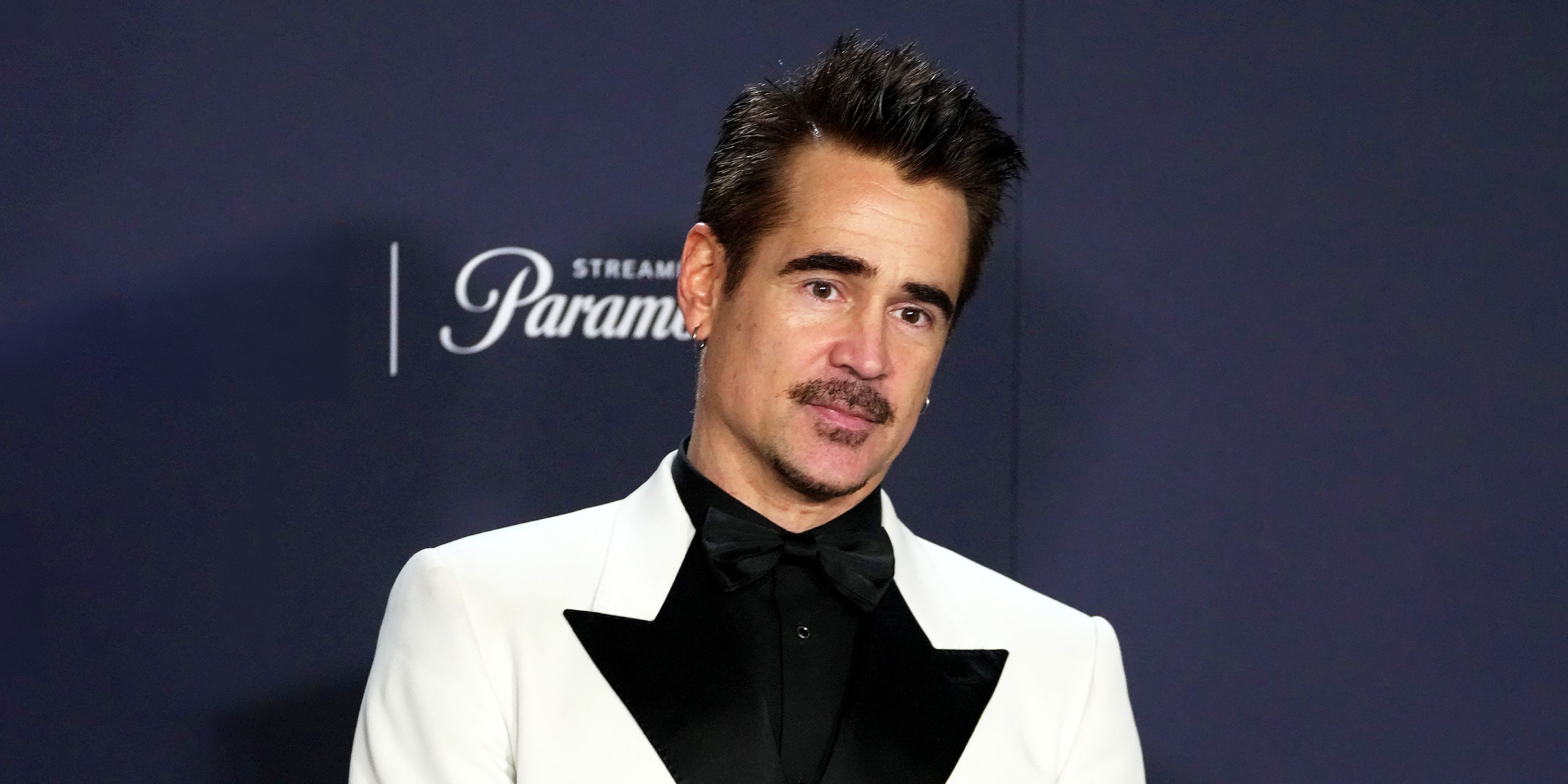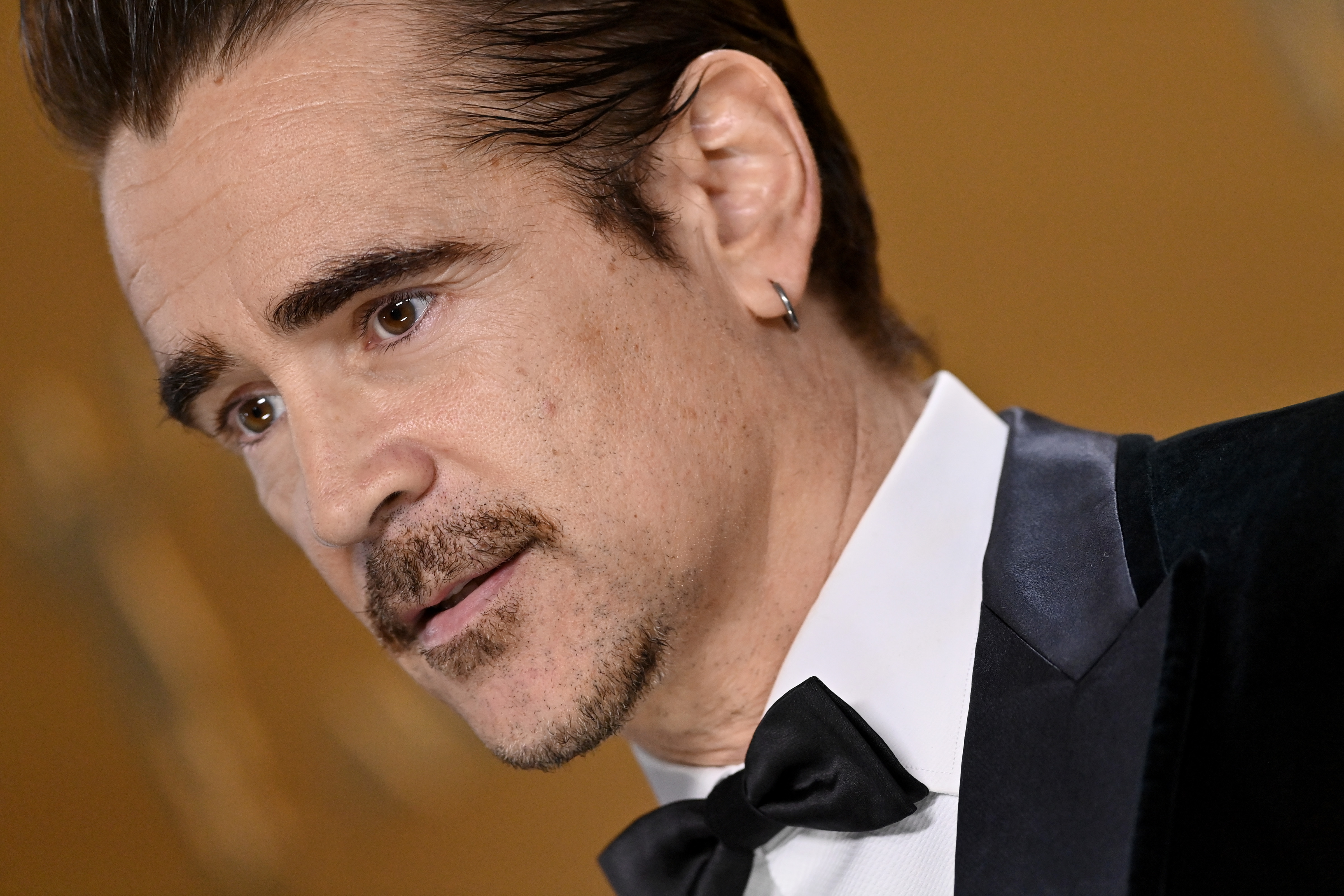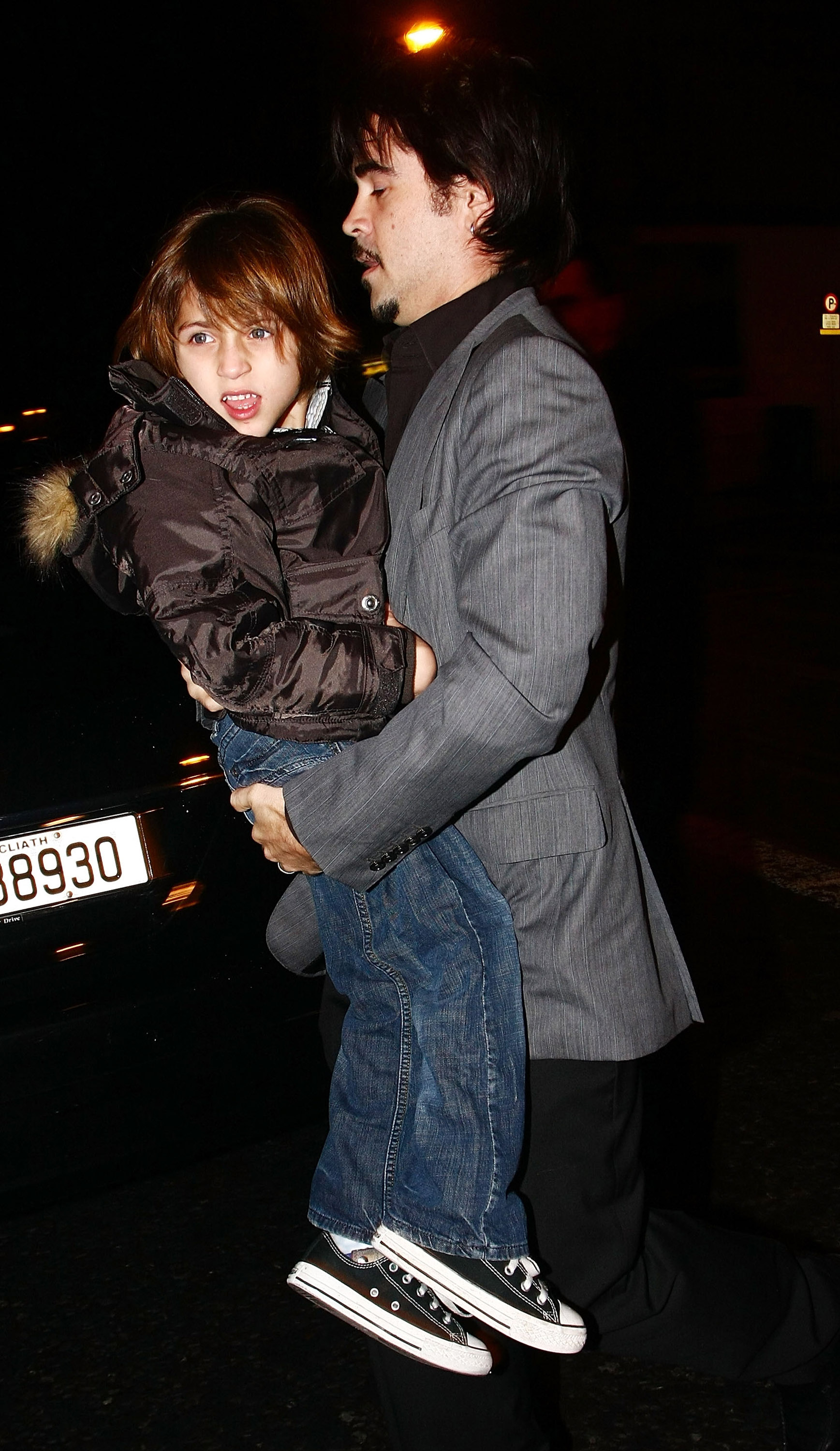
The Hollywood star has always been a hands-on father to his son James, who lives with Angelman syndrome. Now, he’s opening up about the difficult but deliberate decision to place him in long-term assisted care.
Colin Farrell is best known for his roles in films like “The Banshees of Inisherin,” “In Bruges,” and “The Batman,” but offscreen, he’s a devoted father to a son with a rare neurological condition. James has largely been kept out of the spotlight — until recent years.

Colin Farrell at the 31st Annual Screen Actors Guild Awards at Shrine Auditorium and Expo Hall on February 23, 2025, in Los Angeles, California. | Source: Getty Images
For the first time, Colin opened up about life with his son, sharing the emotional journey of raising a child with special needs. Alongside that, he revealed another deeply personal decision — placing James in a residential care facility. Continue reading to learn why they made that choice.

Colin Farrell with his son James at Krystle Nightclub on December 27, 2009, in Dublin, Ireland. | Source: Getty Images
Colin Farrell’s Bond with His Son
Colin shares a deeply personal and enduring bond with his son James, who was born with Angelman syndrome — a rare neurogenetic disorder that affects the nervous system.
Now a young adult, James continues to inspire his father daily, not only through his perseverance but through the way he lights up the world around him.
Whenever James sees his father, his eyes brighten with unmistakable joy. But for Colin, it’s the way others respond to his son — with warmth and kindness — that moves him even more.
“I want the world to be kind to James,” the actor said. “I want the world to treat him with kindness and respect.” That simple, heartfelt wish became a driving force behind his decision to speak openly about his life with James for the first time.
James, who turned 21 in September 2024, is the son of Colin and his former partner, model Kim Bordenave. As he entered adulthood, he began to age out of many of the support systems that helped him as a child. Colin revealed:
“Once your child turns 21, they’re kind of on their own. All the safeguards that are put in place, special ed classes, that all goes away, so you’re left with a young adult who should be an integrated part of our modern society and more often than not is left behind.”
In response, the Hollywood star launched the Colin Farrell Foundation to support adult children with intellectual disabilities. The foundation focuses on advocacy, education, and developing innovative programs to close the gap that often forms once individuals like James reach adulthood.
However, Colin was keenly aware of the responsibility that comes with speaking publicly about James. “This is the first time I’ve spoken about it, and obviously the only reason I’m speaking is I can’t ask James if he wants to do this,” he explained.
“I mean, I can. I speak to James as if he’s 20 and has perfect fluency with the English language and age-appropriate cognitive ability,” Colin added.
“But I can’t discern a particular answer from him as to whether he’s comfortable with all this or not, so I have to make a call based on knowing James’s spirit and what kind of young man he is and the goodness that he has in his heart,” he further shared.
Though James is nonverbal, his famous father has always seen him as a determined and resilient young man who has worked so hard all his life, so hard,” Colin said.
The model acknowledged that James’s physical limitations are what challenge them most.
“Repetition, repetition, balance, his jerky gait. When he started feeding himself for the first time, his face looks like a Jackson Pollock by the end of it. But he gets it in, he feeds himself beautifully. I’m proud of him every day, because I just think he’s magic,” the award-winning actor revealed.
James’s mother has also shared glimpses into her experience raising their son. In a post written on Angelman Syndrome Awareness Day in February 2023, she introduced James and described how their journey has evolved.
“He has expanded my perception to see that there’s so much more available to us in our minds than we realize if we open ourselves up to what is possible,” she revealed. The model added:
“Having a diagnosis that is not neurotypical does not condemn you to a life of suffering if you choose to see things differently and open up to possibilities.”

Colin Farrell and Kim Bordenave photographed on February 6, 2003, in Los Angeles, California. | Source: Getty Images
Kim also described James as a typical young man determined to engage with the world on his own terms. “It’s when he’s not able to make his own choices and decisions, he suffers,” she explained.
“When he’s not seen and not heard then he suffers. He suffers because there isn’t the access and accommodations he requires to be in the world so that he can enjoy his life,” the post goes on.
For both Colin and Kim, the goal has always been to create space for James to thrive as an individual. “He deserves to have a voice. That is where we have to continue to change the world and create #inclusiveexperiences for everyone,” Kim added.
“He is just like you and I, but his brain is just wired a little differently. Very differently to be honest, but when we take the time to see the beauty in our differences is when the true expansion happens,” the post concluded.
For Colin, the decision to speak publicly was made in James’s honor. “If James knew getting his photograph in the back garden with me […] could help families and other young adults who live with special needs, he would say, ‘Dad, what are you talking about?'” the “Total Recall” star stated. He added:
‘”Why are you even asking me? It’s a no-brainer.’ So that’s why we’re doing it. This is all because of James — it’s all in his honor.”
Why Colin Chose Assisted Care for James, Despite Being Able to Provide It Himself
As James transitioned into adulthood, Colin and Kim were faced with a difficult but necessary decision — placing their son in long-term residential care.
Though they had the financial means and personal commitment to continue caring for him themselves, the choice reflected deeper concerns about the future — particularly the kind of life James could live beyond their immediate presence.
In a May 2025 interview with Candis, Colin opened up about the decision. He explained that while some parents preferred to manage their child’s care personally, he and Kim felt it was important to think ahead — especially about what might happen if they were suddenly no longer around.
What they wanted, more than anything, was for their son to have “a full and happy life.”
“What if I have a heart attack tomorrow,” he said, “and, God forbid, James’s mother, Kim, has a car crash and she’s taken too — and then James is on his own. Then he’s a ward of the state and he goes where? We’d have no say in it.”
This fear of James being left vulnerable and without a voice in where or how he would live weighed heavily on both parents. Their goal became clear — to find a place they trusted while they were still healthy and able to be involved.